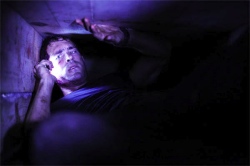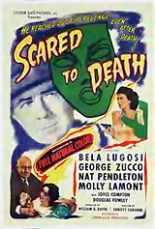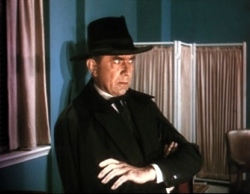
 This is the one about Paul Conroy (Ryan Reynolds), an American civilian truck driver who is captured by Iraqis and buried alive in the desert with an active cell phone, a cigarette lighter and a flask. He awakens in a plain wood coffin with no idea how he got there. He receives a call from the guy who buried him demanding “five million money” by 9 that night — two hours — or he will be left to die. The Iraqi also demands that his victim record a video on the cell phone.
This is the one about Paul Conroy (Ryan Reynolds), an American civilian truck driver who is captured by Iraqis and buried alive in the desert with an active cell phone, a cigarette lighter and a flask. He awakens in a plain wood coffin with no idea how he got there. He receives a call from the guy who buried him demanding “five million money” by 9 that night — two hours — or he will be left to die. The Iraqi also demands that his victim record a video on the cell phone.
And that’s it for Buried’s 95-minute running time. We never leave the coffin, but director Rodrigo Cortes and screenwriter Chris Sparling find excuses for Paul to call his wife, the FBI, a hostage negotiator, the kidnapper and the HR director of the company he works for.
 When I first saw the movie’s trailer, which includes the moment when an asp slithers into the coffin through a crack, I thought the film would be a tough sell — not because it plays so strongly on the common fear of enclosed places, but because its lack of action would bore younger audiences.
When I first saw the movie’s trailer, which includes the moment when an asp slithers into the coffin through a crack, I thought the film would be a tough sell — not because it plays so strongly on the common fear of enclosed places, but because its lack of action would bore younger audiences.
As it turns out, the picture recouped only a third of the three million money it cost to make. It’s pretty intense and Reynolds turns in a better performance than you’d ever have given him credit for, but stick it out to the end and you’ll see why it flopped. The question is, how did anyone ever think it wouldn’t? —Doug Bentin



 The answer: Because Arthur Penn was awesome.
The answer: Because Arthur Penn was awesome.

 I know that filmmaking was still pretty antiquated back in 1947, but you’d think the filmmakers would have been smart enough not to begin with an autopsy if they wanted audiences to be surprised when the lead female dies at the end. You’d also think they’d have the foresight not to end with the line “She was … scared to death!” but they didn’t, and God bless them for it. —Rod Lott
I know that filmmaking was still pretty antiquated back in 1947, but you’d think the filmmakers would have been smart enough not to begin with an autopsy if they wanted audiences to be surprised when the lead female dies at the end. You’d also think they’d have the foresight not to end with the line “She was … scared to death!” but they didn’t, and God bless them for it. —Rod Lott
 When Uggams is towed into town by Ted Cassidy (Lurch from
When Uggams is towed into town by Ted Cassidy (Lurch from 